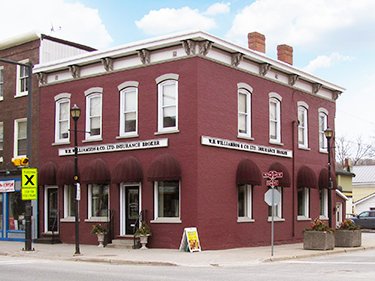Barbecue Season Is In Full Swing: Don’t Go Up In Flames
The joys of outdoor cooking also bring fire and associated risks. Here are some safety reminders for gas and propane barbecues to protect you and your property from harm or damage.
• Never operate a barbecue in an enclosed space, close to a structure, or near combustibles. Have a one metre radius around it free of obstructions.
• Keep your barbecue in tip top shape. Check for hose breakage, valve leaks, and other parts before securing the tank well and turning on the gas.
• When in use, never leave the grill unattended, and when finished turn the tank off before the burners so the remaining gas in the lines can burn off. This can help prevent a flash the next time the BBQ is in use.
• Make sure your fire extinguisher is easily accessible and in good working order.
Additional Tips
• Propane companies use an additive to create an unpleasant odour like rotten eggs to make a propane leak easier to detect, so you can shut off supply immediately, stop using the grill, and clear the area.
• Although the risk of carbon monoxide is low when using a BBQ outdoors, it is not entirely eliminated. Learn to recognize the signs of CO2 poisoning and take appropriate action.
• Store propane tanks in an upright position, in a spot where they are unlikely to be knocked or bumped to prevent any safety risk.
Is Your Boat Winter Ready?
Watercraft of all descriptions, can represent a major investment. Avoid costly surprises when the snow melts with these helpful tips.
- Clean off your watercraft before storing it away, which helps to prevent deterioration and depreciation.
- Covering your boat with plastic shrink wrap (the best way), canvas, or fitted covers, provides two benefits:
It prevents small animals from using the watercraft as a winter home, with the resultant undesirable consequences.
It keeps moisture from getting inside which can give rise to mold and mildew. In addition to the obnoxious odour, mold and mildew can permanently damage upholstery.
- If possible, have your boat professionally winterized. Getting your boat engine flushed to prevent blockages, fogging the motor, and having fuel stabilizer added to your fuel tanks are recommended.
Remember, damage by vermin, such as rodents, and damage from mold or mildew are exclusions not covered by insurance, so it is wise to take steps to avoid such damage.




 W.H. Williamson & Co. Limited
W.H. Williamson & Co. Limited




